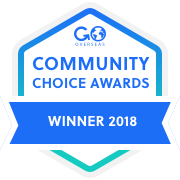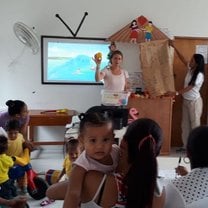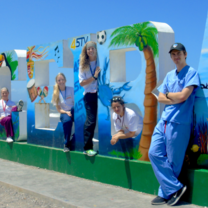At home, I work as a nurse in a busy emergency room in Boston MA. I am used to seeing and caring for people that are sick and people that may be dying of a chronic illness. It was very challenging for me to be around people suffering and dying from HIV/AIDs and not being able to provide them with the care I am used to. The practice of medicine is very different in Tanzania since there are limited supplies and resources at your disposal. People are required to be much more self-sufficient, even when gravely ill. I had to adjust to the fact that just because it is not what I am used to, does not mean it is wrong. I had to respect cultural norms and learn to do what I could within my means for the ill individuals I encountered.
Traveling to Tanzania for volunteering I had no expectations. I had never volunteered in a foreign country and I had never traveled to such a place alone. This was a wonderful experience for me. Not only did I meet some pretty amazing people (local Tanzanias’ and other volunteers) but I also learned a lot about different cultures that will leave a lasting affect on me. Some useful tips for other volunteers are:
Packing: Wear layers. Tanzania Arusha is breezy in the mornings but gets very hot in the afternoon. At dusk it gets very buggy, so it is nice to have long sleeves/pants on. Dress respectful according to the culture, cover your shoulders and don’t wear short shorts. You will most likely stand out as a foreigner, you don’t need to draw more attention to yourself with your clothes.
Understand you can’t change everything in the limited time you are there. There are things that you are going to see that are really challenging to stand by and watch, like the extreme poverty, hunger and illness of people and animals. You can’t fix it all, you can temporarily help people but you have to be realistic that this is a way of life for some people in Tanzania.
Try and learn Swahili before traveling to Tanzania. Many people do speak English, but it is common to run into people that only speak Swahili. So it will help you get around, meet locals and enjoy your time
Bring your own first aid kit, medicines, bug spray and sunblock. These are things that will be helpful while your traveling and may be challenging to find while your away.
If you would like to donate clothes, food or house hold goods, i would recommend bring a second piece of luggage. Most airlines will allow an extra luggage if you are volunteering.
Be careful and cautious traveling alone while in Tanzania. You should not run into any problems if you use caution; however here are some warnings: a lot of people will approach you and try to sell you things, do not follow people that are trying to lure you to stores. Do not agree to a taxi/bota bota ride if you do not agree on a set price and they do not know where you are going.
Google Maps does work in Tanzania, i found it very useful in making my way around
Dala Dala’s are affordable and easily accessible, just make sure you know the name of the area you are going to. If you have any issues the Dala Dala drivers will guide you to the correct bus if you ask.
You will be charged more for things at the market if you are a foreigner. Try to learn the local prices for things.
























